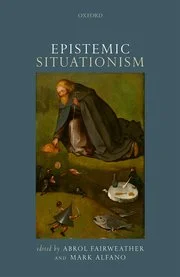epistemic emotions and intellectual virtues
/It’s uncontroversial to say that many virtues are emotional dispositions, even if they involve behavior in addition to emotion. Intellectual courage disposes its bearer to appropriate fear and confidence in matters epistemic. Alfano (2016b, chapter 4) suggests that, because we are able to individuate emotions more clearly than virtues, it might be helpful to index virtues to the emotions they govern. If this is on the right track, then intellectual virtues could be distinguished and structured by cataloguing what Morton (2010; see also Morton 2015 and Stocker 2012) calls epistemic emotions. These include such states as curiosity, fascination, intrigue, hope, trust, distrust, mistrust, surprise, doubt, skepticism, boredom, puzzlement, confusion, wonder, awe, faith, and epistemic angst. Note that some of these emotions are referred to by words that are also used to refer to their controlling virtues. As Morton says, “the words often do triple duty. Character links to virtue links to emotion” (2010).
VE can benefit from theorizing about epistemic emotions in at least three ways. One benefit of theorizing intellectual virtues via epistemic emotions is that doing so furnishes practitioners with a sort of “to do list”: many of the virtues related to the emotions mentioned in the previous paragraph are unexplored or underexplored. These virtues are ripe for the picking. Another benefit of the lens of epistemic emotion is that it helps to make sense of intellectual virtues as dispositions to motivated inquiry rather than just static belief. Emotions are, after all, motivational states, and epistemic emotions in particular direct us to seek confirmation, disconfirmation, and so on. This point is related to but more specific than Michael Brady’s (2013, 92) idea that emotions in general motivate inquiry because they “capture and consume” attention, thereby motivating inquiry into their own eliciting conditions. For instance, fear captures and consumes the attention of the fearful person, directing him to find and understand the (potential) threat or danger.
Finally, epistemic emotions help to make sense of the motivations and practices of scientists. For example, Thagard (2002) mined James Watson’s (1969) autobiographical account of the discovery of the structure of DNA for emotion terms; the most common related to interest and the joy of discovery, followed by fear, hope, anger, distress, aesthetic appreciation, and surprise. In addition, the literature on the demarcation between science and pseudo-science, along with the literature on scientific revolutions, is peppered with the language of emotion – especially epistemic emotion. Popper (1963) talks of scientists’ attitudes to their hypotheses as one of “hope” rather than belief. He distinguishes science from pseudoscience by sneering at the “faith” characteristic of the latter and praising the “doubt” and openness to testing of the former. He argues that the “special problem under investigation” and the scientist’s “theoretical interests” determine her point of view. Lakatos (1978) contrasts scientific knowledge with theological certainty that “must be beyond doubt.” Kuhn (1962) says that the attitude scientists have towards their paradigms is one of not only belief but also “trust.” He claims that scientists received the discovery of x-rays “not only with surprise but with shock […] though they could not doubt the evidence, [they] were clearly staggered by it.”
In times of crisis, says Kuhn, scientists are plagued by “malaise.” Such malaise has recently become most evident in social psychology’s replication and reproducibility crisis. For example, two pre-registered replications of the so-called “ego-depletion effect” recently found that, despite decades of positive studies and successful meta-analyses, there appears to be no such effect (Hagger et al. 2016; Lurquin et al. 2016). A science journalist writing for Slate magazine described these findings as “not just worrying” but “terrifying,” because they suggest that an entire field of research is “suspicious” (Engber 2016). The article quotes Evan Carter, one of the young scientists in the thick of the crisis, saying, “All of a sudden it felt like everything was crumbling. I basically lost my compass. Normally I could say, all right there have been 100 published studies on this, so I can feel good about it, I can feel confident. And then that just went away.” Engber goes on to lament that, “All the old methods are in doubt,” even meta-analysis, then quotes the prominent social psychologist Michael Inzlicht saying “Meta-analyses are fucked.” On his own blog, Inzlicht (2016) writes that, despite or perhaps because of the fact that he is “in love with social psychology,” nevertheless “I have so many feelings about the situation we’re in, and sometimes the weight of it breaks my heart. […] it is only when we feel badly, when we acknowledge and, yes, grieve for yesterday, that we can allow for a better tomorrow.” He goes on to say, “This is flat-out scary,” and, “I’m in a dark place. I feel like the ground is moving from underneath me and I no longer know what is real and what is not.” Practitioners of VE may be in a position to offer aid and comfort to afflicted scientists, or at least an accurate description of what ails them.





Mark Alfano. Cambridge University Press (2013).